Introduction & Analysis
This collection of open-source English-language news articles published over the past week highlights significant events and issues concerning Myanmar. They present a snapshot of the country's safety and security landscape.
- Myanmar continues to experience a complex and intensifying conflict, marked by ongoing military counteroffensives that have led to the recapture of strategic towns like Mobye, Nawnghkio, and Thabeikkyin, but also widespread violence, displacement, and casualties from shelling and airstrikes, alongside natural disasters such as significant flooding in Shan State.
- The military junta (State Administration Council or SAC) is actively attempting to solidify its control and gain international legitimacy by planning sham elections for late 2025 and early 2026, a move supported by allies such as China, Russia, Belarus, Laos, Cambodia, and Thailand, while also enacting new laws to deter leaks and suppress opposition.
- China plays a critical role in supporting the junta, providing substantial financial aid (e.g., a $1 billion advance payment for energy resources), military equipment (e.g., advanced drones, Norinco ammunition), technical assistance for arms production, and political endorsement, while simultaneously disrupting resistance alliances near its border and urging resumption of trade.
- Amidst this turmoil, the National Unity Government (NUG) and various resistance forces are striving to form a unified front and a federal democratic union constitution to counter military rule, though they face challenges in coordination and securing consistent international support, as evidenced by mixed signals from the US, which, despite congressional efforts to increase sanctions, has also eased some restrictions due to geopolitical interests like access to rare earth minerals and containing China's influence.
Census & Elections
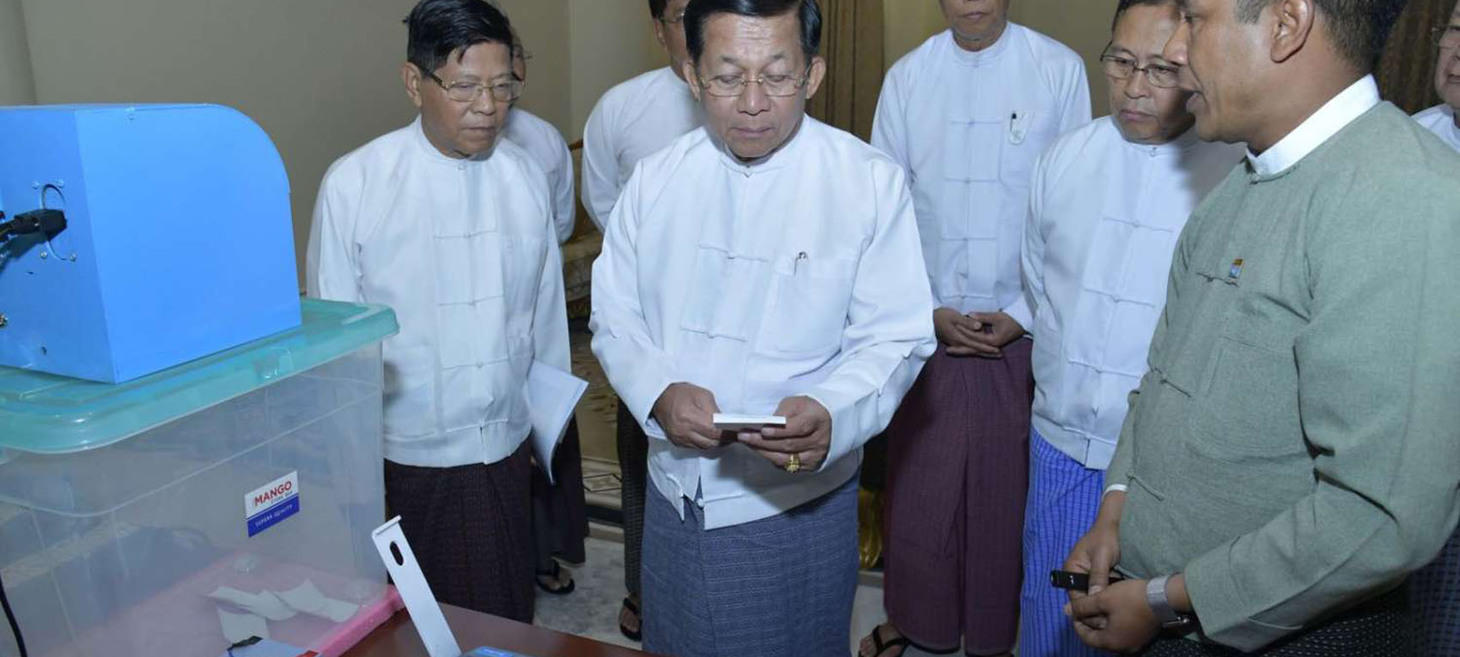
Myanmar Regime Sets More Traps to Guarantee Election Win
The Myanmar military regime has enacted a second amendment to the Political Parties Registration Law, allowing for the dissolution of parties accused of electoral fraud or unlawful conduct, a move designed to minimize risk from challengers and secure victory in its planned December poll. This law previously required national parties to meet strict membership and office requirements, leading to the dissolution of the National League for Democracy (NLD) and other major pro-democracy parties, with failure to comply or engagement with "terrorist" organizations also punishable by dissolution. While the regime's proxy, the Union Solidarity and Development Party (USDP), prepares to contest the election, the plan has been denounced by Western countries and pro-democracy groups as a sham, though supported by some of the junta's allies.

Another Sham Election in Burma – New Briefing by Burma Campaign UK
The Burmese military is planning new elections for late 2025, which are widely considered a "sham" designed to rebrand the military and secure international legitimacy, replicating the outcome of the 2010 elections. The military, currently fighting for its survival and controlling only about 20% of the country, views these elections as a "gamechanger" to reset its image and enable continued military rule, similar to the Thein Sein era. Instead of pressuring the people of Burma to compromise with the military, the international community is urged to support the bottom-up democracy and devolved administrations that are forming in areas liberated from military occupation.
Conflict
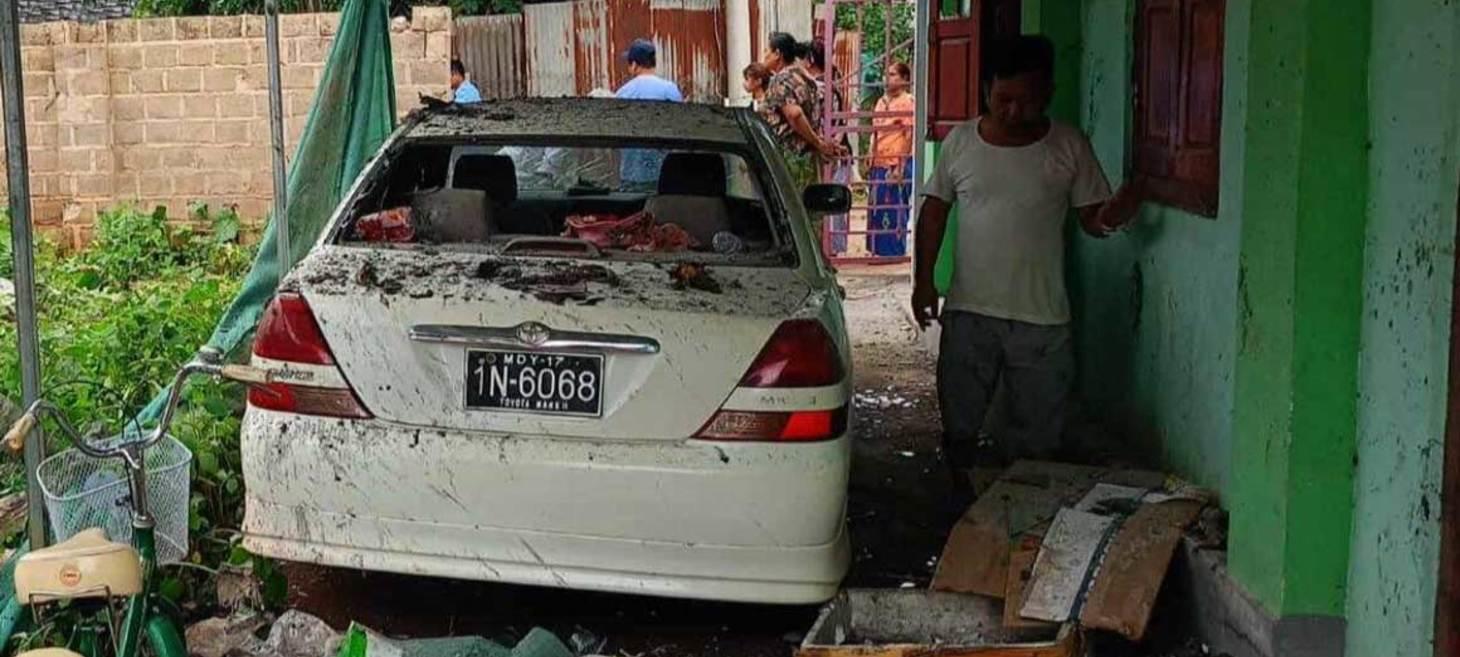
One Dead, Thousands Flee After Nawnghkio Troops Shell Village
Heavy artillery fire from Nawnghkio Military Council troops struck Nawng Ping village on July 26, 2025, killing one civilian and destroying homes, which prompted thousands of residents and displaced persons to flee. This assault followed an earlier attack on July 25 in Pin Paw village that injured two civilians, one fatally, and came after a July 20 attack on Nawng Pyit village that killed two displaced civilians, including a child. The escalating violence, marked by drone strikes and the bombing of the Gote Twin Bridge, has further worsened security and heightened fears of an imminent ground offensive and renewed clashes.
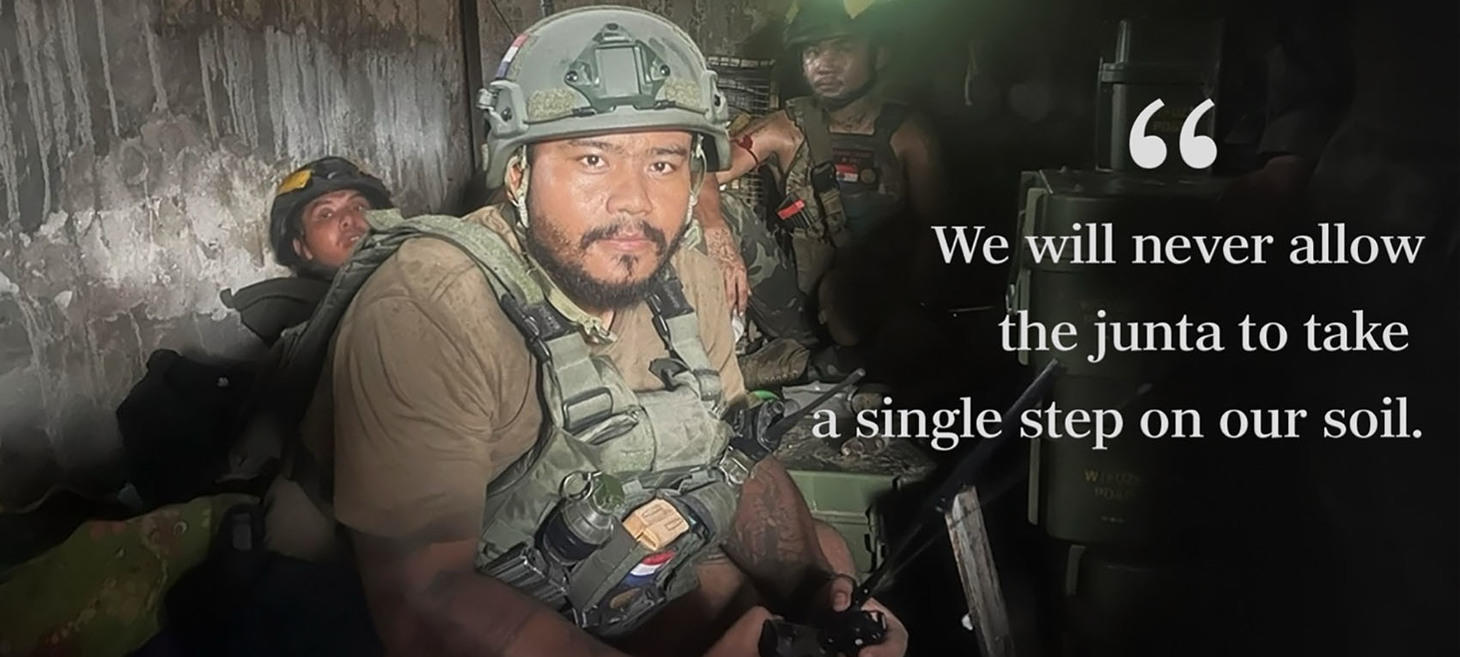
Why Myanmar Junta’s Face-Saving Counteroffensive is Doomed to Fail
The Myanmar junta has launched a counteroffensive, recapturing towns like Mobye from resistance groups, which the Karenni Nationalities Defense Force (KNDF) deputy commander Maui views as a face-saving measure rather than a definitive victory. Despite the junta's use of chemical weapons, drones, and increased manpower through conscription, the KNDF, formed in response to the 2021 coup, asserts they will continue their fight against the military dictatorship until the system collapses, refusing to accept control by those with guns. The KNDF, one of Myanmar's most active anti-junta forces, acknowledges the challenges, including foreign support for the junta, but remains determined to achieve their goals with the essential support of the people.
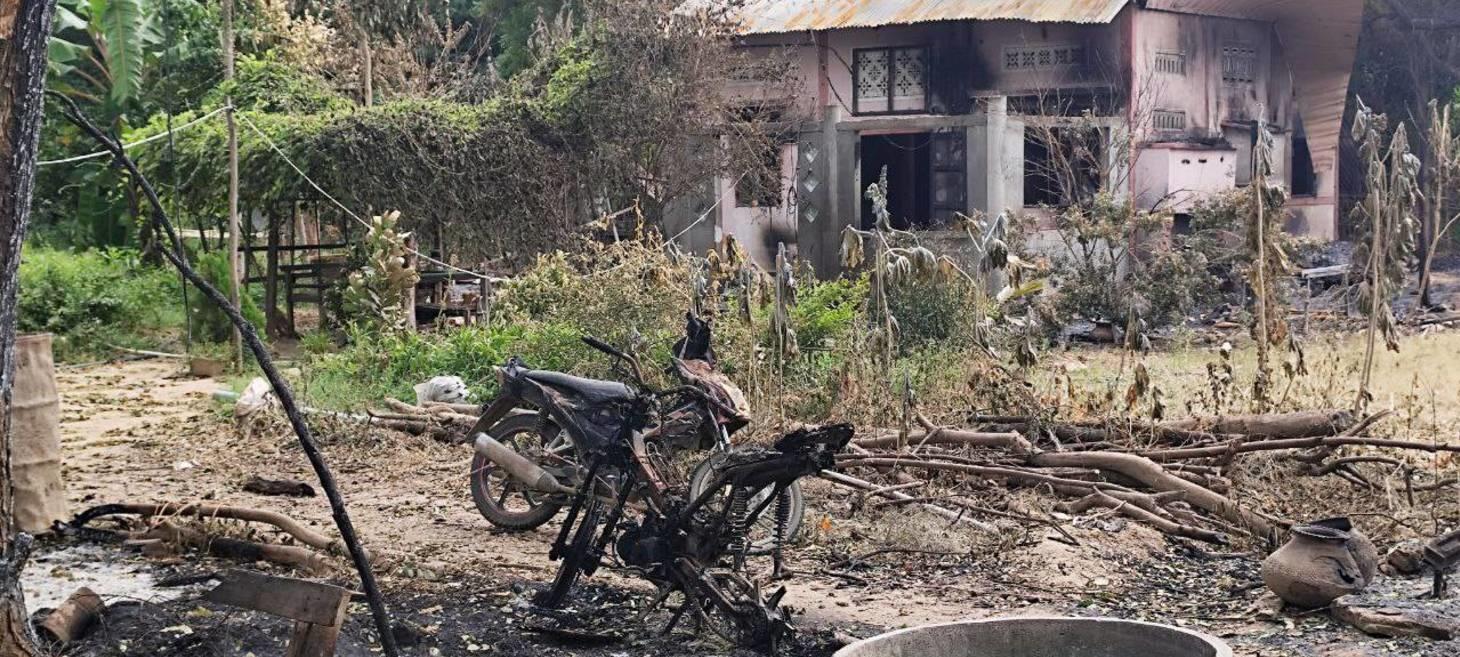
After massive junta convoy stops in Magway Region, ground troops terrorise nearby villages
Clashes and arson attacks, concentrated in Magway Region’s Pakokku Township, have displaced thousands of civilians following a massive junta convoy stop and subsequent terrorisation of nearby villages. This incident is part of an ongoing pattern of conflict in Myanmar, with recent reports detailing junta attacks killing civilians in various regions, the enactment of new laws, and arrests of activists. The broader context includes significant humanitarian issues such as aid blockades and hardships for internally displaced persons, alongside economic challenges and continued resistance against the junta.
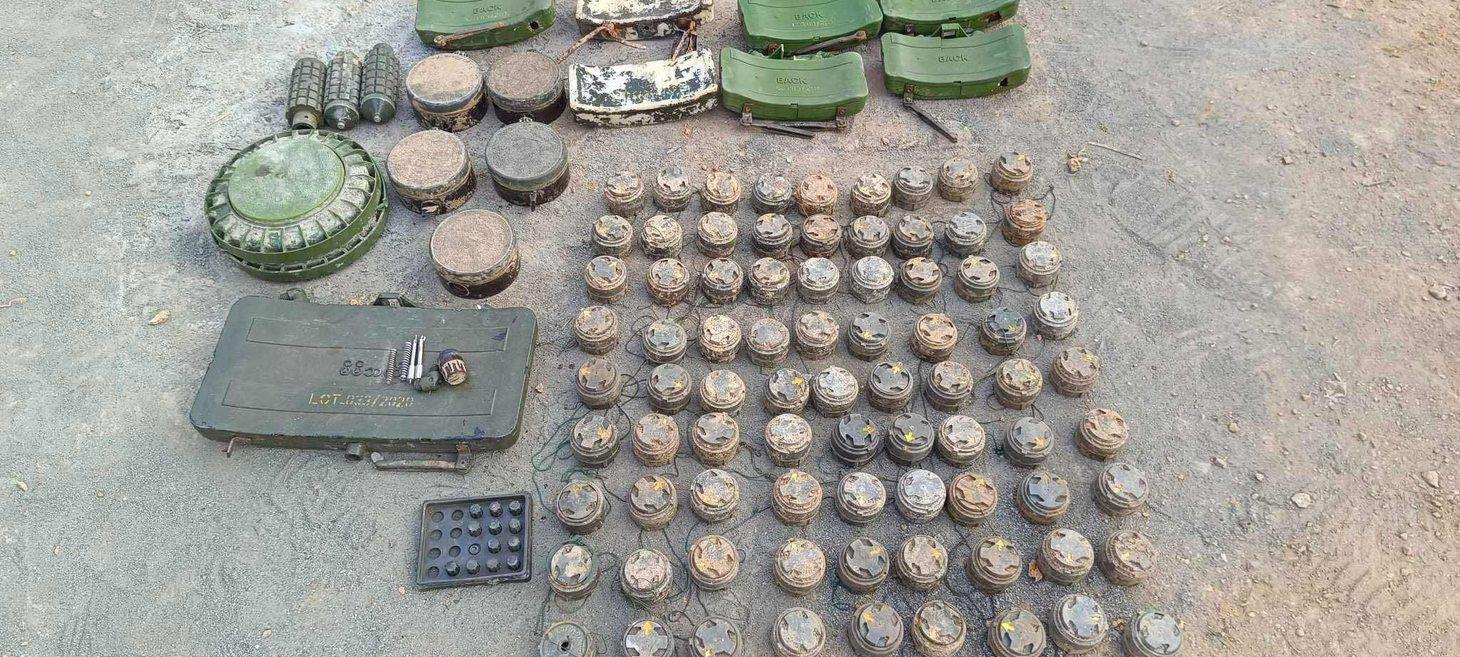
Mindat Town Landmine Blast Injures Two
A landmine explosion in the central part of Mindat Town, Chin State, on July 27, 2025, resulted in two injuries, with one person requiring a leg amputation and the other sustaining serious facial injuries. This incident occurred in a busy area despite warnings from the resistance forces, including the Mindat Chinland Defence Force (CDF), who took control of the town on December 21, 2024, to avoid unexploded ordnance and to use only cleared routes. Although about 2,000 landmines were reported cleared by the Mindat Township Interim Administration on April 17, 2025, unexploded ordnance remains a serious issue, leading to at least five such incidents since the resistance forces took control.
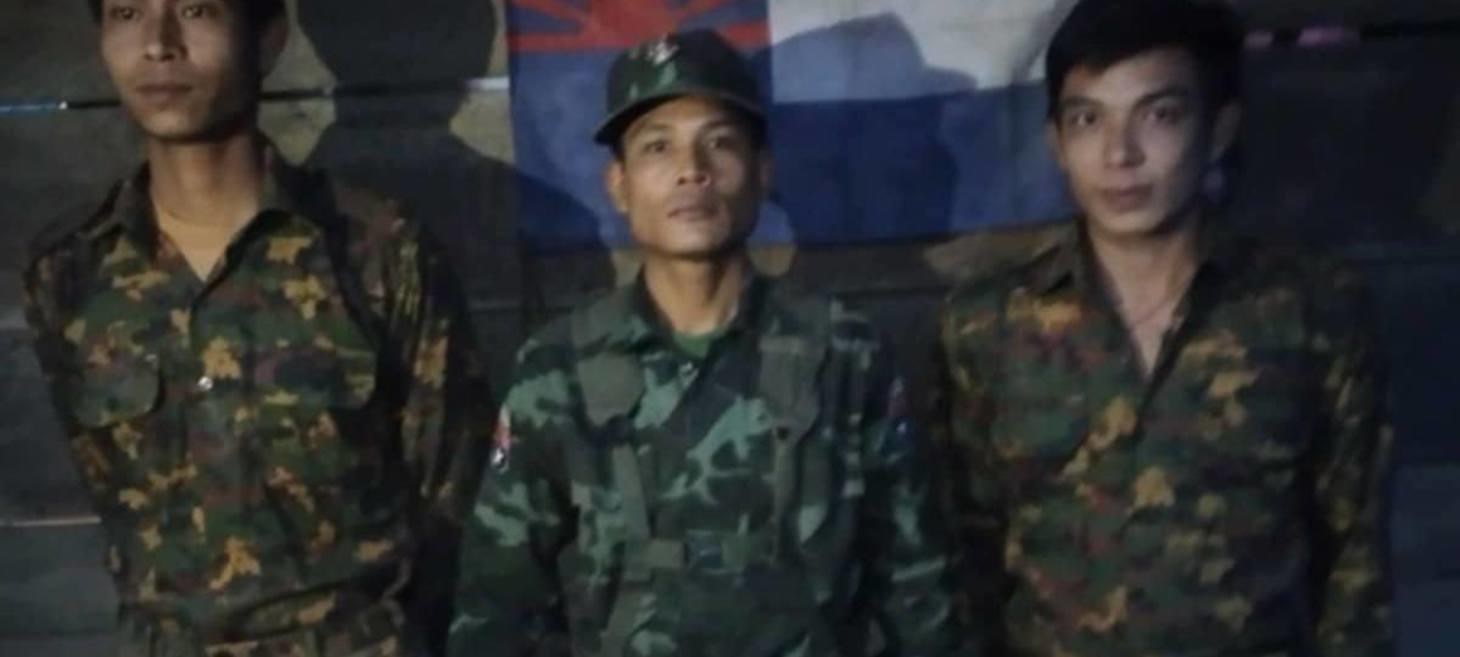
New junta recruits defect to Karen forces in Myanmar’s south
Recent reports indicate that new junta recruits have defected to Karen forces in Myanmar’s south. Spokespersons for the Karen National Union (KNU) Brigade 4 unit that received the defectors confirmed they were provided with shelter and each given a payment of 3 million kyat (US $680). This event was reported on July 23, 2025, and includes a photo of the defectors after joining Battalion 11 in KNU/KNLA Brigade 4.

Thousands remain displaced as junta struggles to secure Nawnghkio
In Myanmar, thousands remain displaced in areas like Nawnghkio, where basic services such as electricity and internet are cut off, and residents fear arrest and lawlessness even after junta troops reportedly retook the town in early July 2025. The junta's actions include shelling and bombing that have killed civilians, including children, arresting prominent activists, enacting sweeping laws on military secrets, and causing economic disruptions like power shortages and land grabs, while also blocking aid. Despite these efforts, anti-junta forces continue to make gains, and a NUG-founded bank is working to meet emergency needs in the country amidst ongoing conflict and humanitarian challenges.
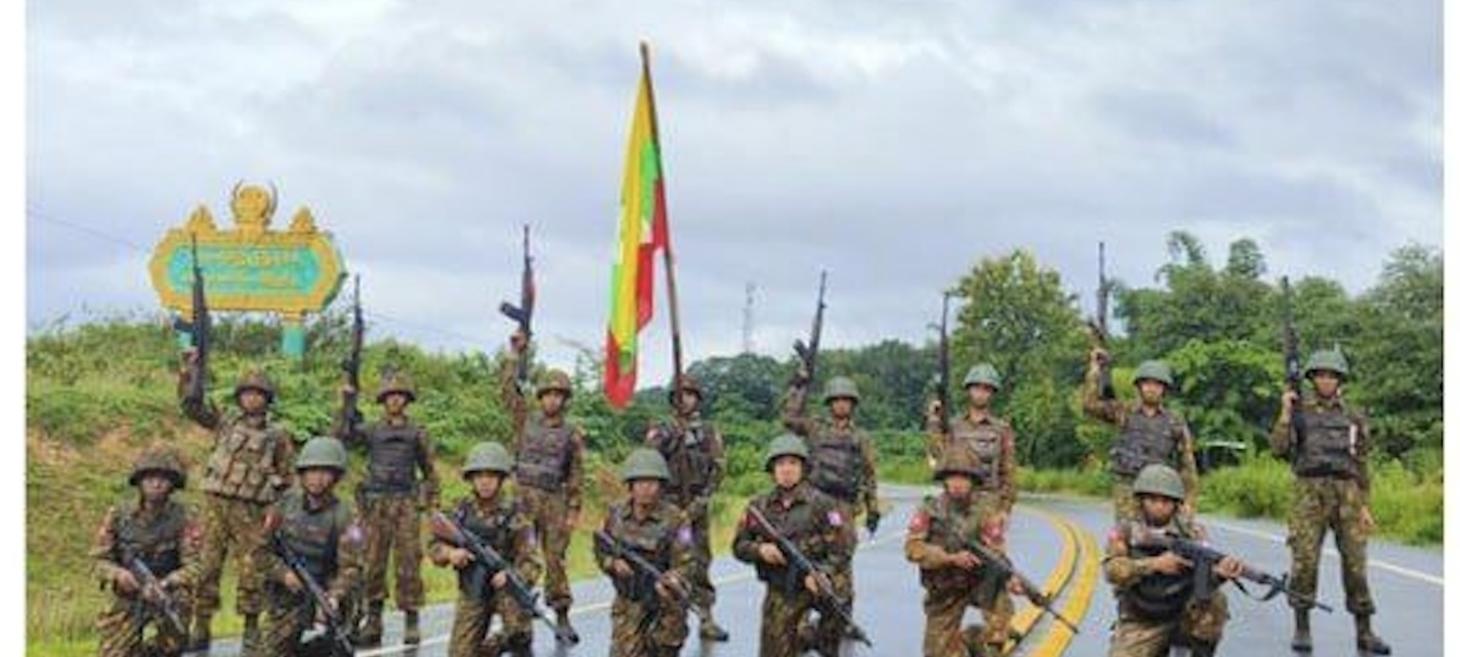
Myanmar regime claims control of key highway in Karen State
The Myanmar regime has claimed control of a key highway between the towns of Kawkareik and Kyondoe in Karen State, and junta-controlled state media has shown photos of their forces posing on a section of this road. However, resistance forces and local residents in the area deny that the junta has completely retaken the road.
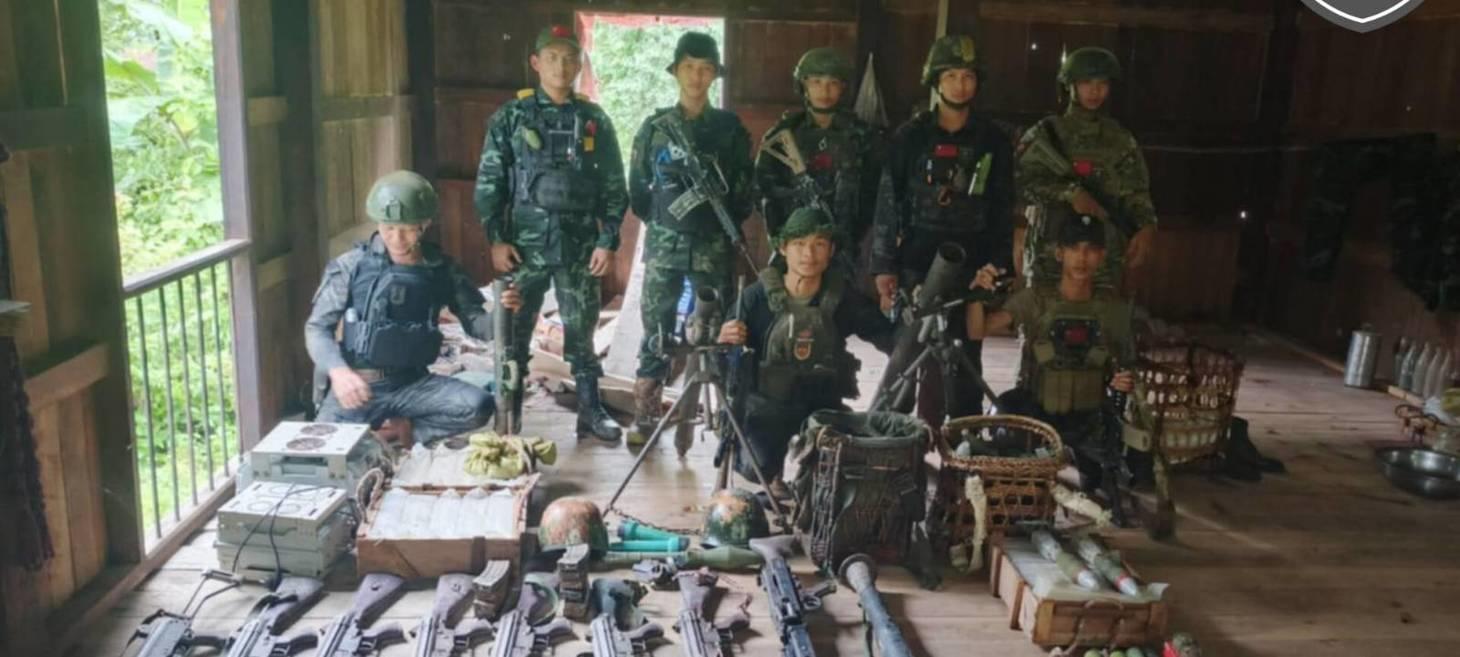
Resistance forces seize two junta bases in Bago offensive
A coalition of anti-junta forces, including the People’s Defense Forces (PDF), captured two strategic junta positions in Bago Region, Myanmar on July 25, 2025, despite facing airstrikes and reinforcements. This offensive is part of the ongoing conflict in Myanmar where anti-junta groups are making gains against the military regime, as evidenced by reports of the military losing ground in other areas and junta ships being forced to retreat. The broader context of the conflict includes severe impacts on civilians, with reports of children and other civilians killed in junta attacks, prominent activists arrested, and aid blocked to resistance-held territories.
Crime & Narcotics

Illegal Starlink Use Powers Online Scam Networks in Remote Myanmar, Raising Alarms Among U.S. Lawmakers
U.S. lawmakers are raising alarms over the illegal use of Starlink internet service by criminal groups operating online scam networks in remote areas of Myanmar, as well as parts of Cambodia and Thailand. These fraud operations, often involving trafficked individuals forced to run fake investment or relationship schemes, rely on smuggled Starlink equipment and its roaming plan to maintain consistent, high-speed internet access in regions where standard internet is restricted or unavailable. Senator Maggie Hassan has requested that SpaceX provide details on its efforts to combat this unauthorized access, including tracking disabled devices and addressing concerns from local governments.
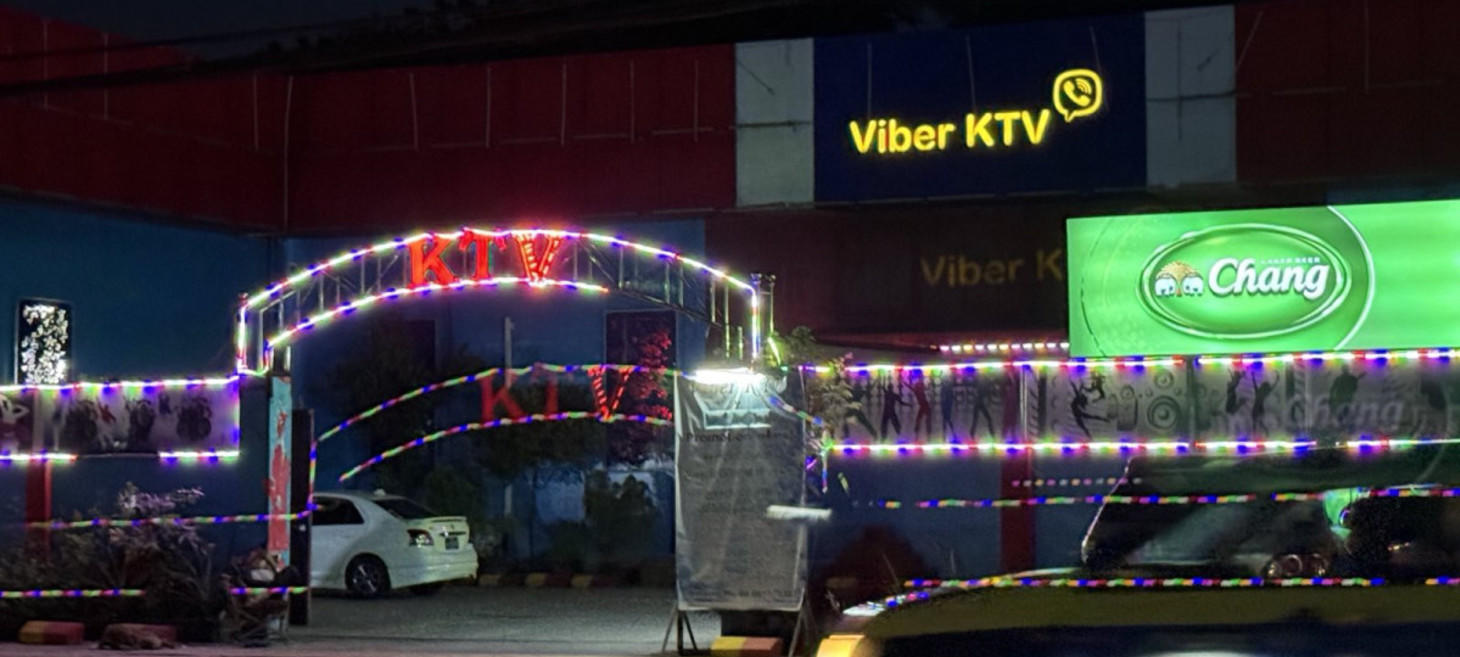
Karaoke Bars in Myanmar: Hubs of Injustice and Resilience
Karaoke bars (KTVs) are increasingly popular in Myanmar, despite often being associated with drugs, sex, and vices, particularly since the 2021 military coup. These venues attract a diverse clientele, from young people seeking release and connection, to families enjoying leisure, and political or business elites building relationships, sometimes involving drug use. Ultimately, KTVs serve as a microcosm of intersectional injustice and resilience within Myanmar society, reflecting complex power dynamics, class divisions, and varied motivations for seeking connection and pleasure amidst conflict and uncertainty.
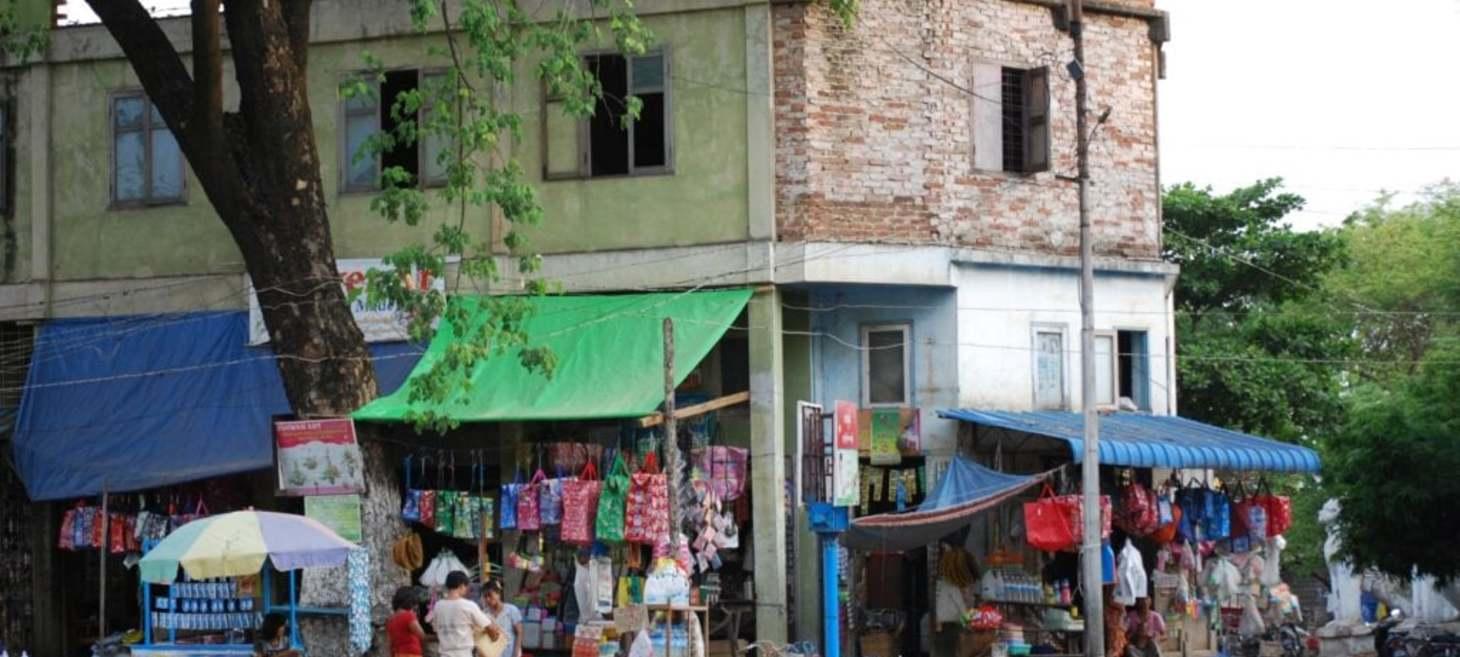
‘We are living in fear’: Kidnappings menace Monywa
Residents of Monywa, Myanmar, are living in fear due to a surge in kidnappings for ransom, with perpetrators increasingly targeting children and wealthy families. Both pro-military militias (Pyusawhti) and pro-democracy resistance forces (People's Defence Forces) are involved in these abductions, with some groups also pressganging young men into military service or turning into criminal gangs. This chaotic situation has led to an exodus of wealthier residents and a widespread loss of trust in the various groups operating in the region, forcing those who remain to live cautiously.
Economy
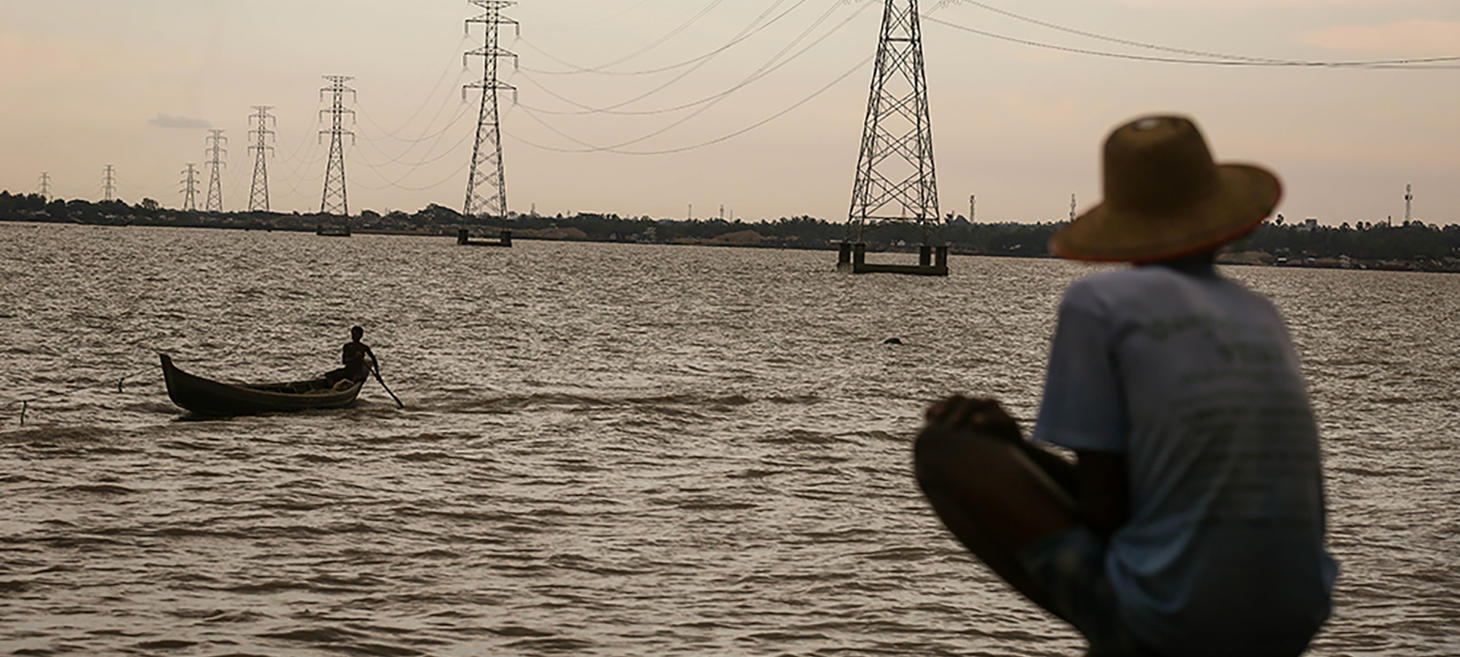
Myanmar Junta Looks for Foreign Energy Investment
Myanmar's regime is actively seeking foreign investment in its electricity and energy sector to address chronic power shortages and soaring fuel prices, which have drawn widespread public criticism. This push for foreign capital is largely due to Western sanctions, capital flight, and a dollar shortage making it difficult to import essential fuels, alongside a lack of financial capital hindering domestic energy production despite abundant natural resources. The junta is collaborating with China, Russia, and India on various energy projects, and the energy sector recently accounted for 28 percent of all foreign investment across key economic sectors.
Foreign Affairs
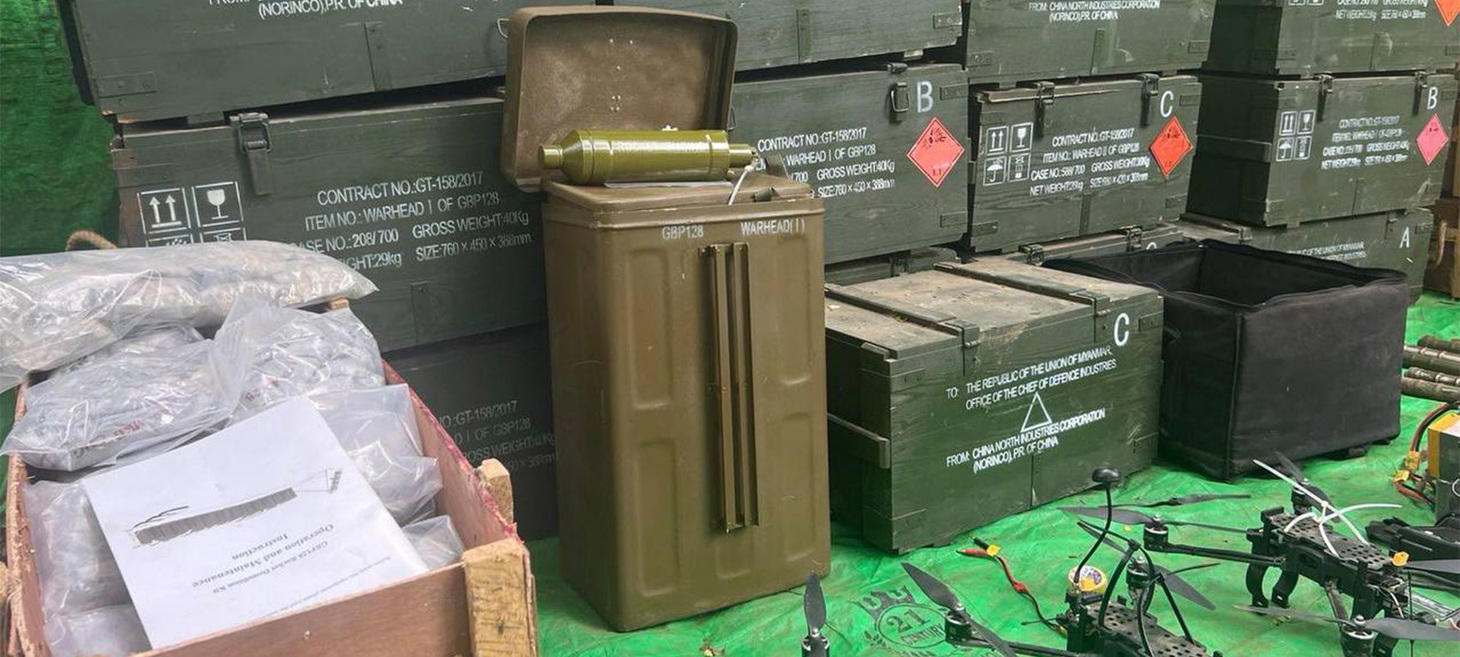
Myanmar Rights Group Demands Chinese Sanctions
Justice For Myanmar (JFM) has demanded sanctions on the Chinese state-owned defense corporation Norinco for allegedly arming Myanmar’s regime, calling on China to cease its complicity in military atrocities. Norinco is accused of supplying weapons, surveillance technology, and materials for domestic arms production to the junta, with its ammunition recently seized by the Mandalay People's Defense Force. This cooperation, reportedly linked to a 2017 contract and permission for Norinco's subsidiary Wanbao to extract copper, contributes to growing anti-Chinese sentiment in Myanmar.

China’s Support of Myanmar Junta Will Prove Short-Sighted
China dramatically increased its support for Myanmar's military junta after the launch of Operation 1027, providing political legitimacy, an economic lifeline estimated at US$1 billion, and military assistance to prevent its collapse. Beijing's motivations include viewing the junta as a reliable anti-Western strategic partner, seeking control in its regional backyard, and securing more favorable economic terms from a desperate regime. Despite this aid prolonging the conflict and entrenching the junta's position, it has not delivered a long-term solution, instead leading to stalled Chinese economic interests, increasing public opposition within Myanmar, and deepening the military's own distrust of China.
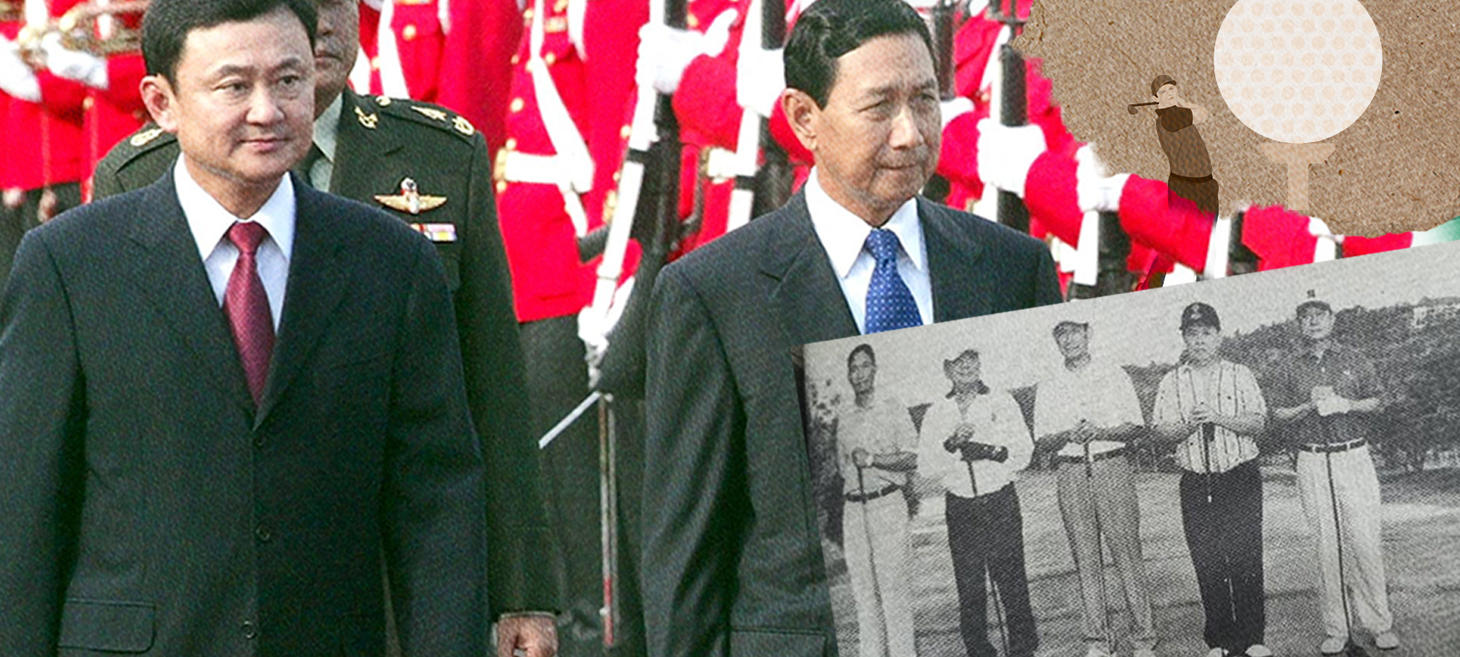
When Myanmar Generals’ Superiority Complex Played Out on a Thai Golf Course
IIn 2002, Thai Prime Minister Thaksin Shinawatra invited Myanmar General Maung Aye for a goodwill visit that included a golf match between military officers, aimed at easing escalating cross-border tensions. General Maung Aye, reflecting the Myanmar generals’ superiority complex and a desire to balance historical pride with diplomatic etiquette, instructed his team to win but not too decisively, nor lose badly. This strategic approach at the Blue Canyon Golf Course resulted in a narrow victory for the Myanmar side, which satisfied Maung Aye and contributed to maintaining delicate bilateral ties between the two nations.
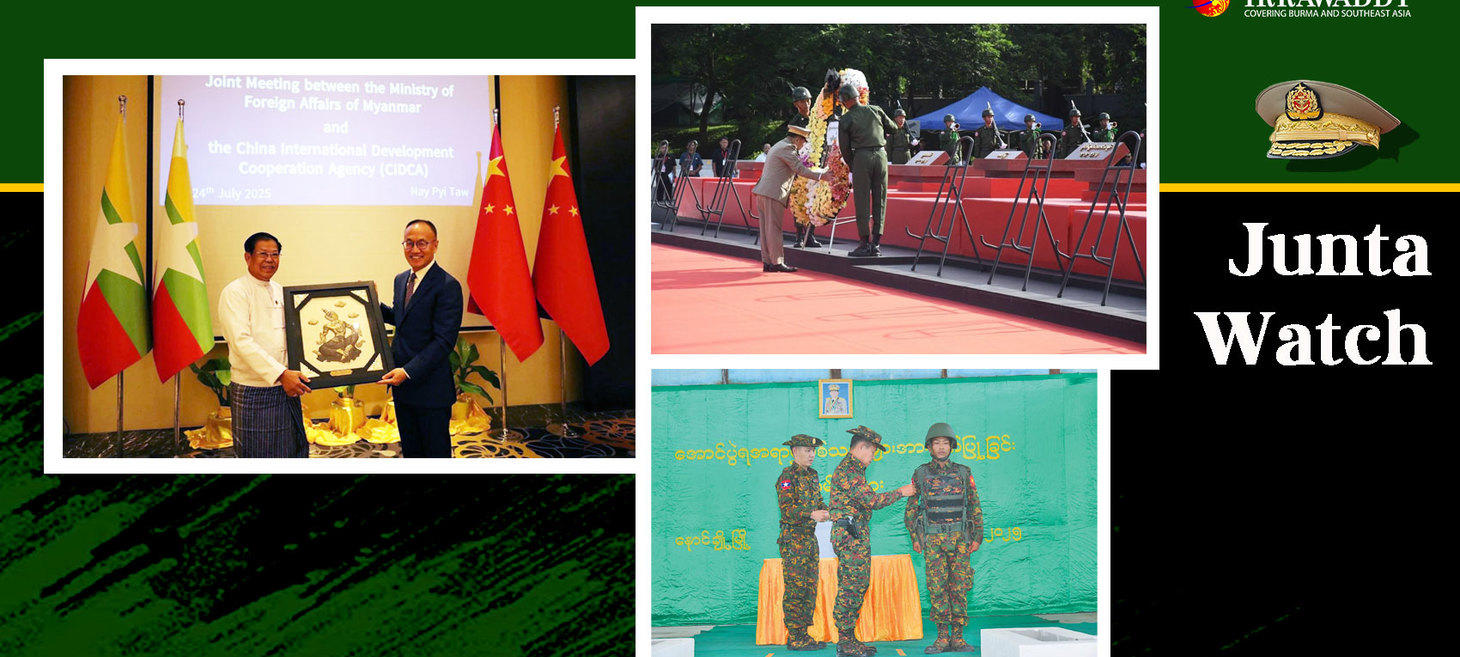
Beijing Bets Big on Blood-Soaked Regime; China Trade Route in Junta Crosshairs; and More
China has significantly increased its support for Myanmar's military junta, providing fresh financial backing through the China International Development Cooperation Agency (CIDCA) and signing new Memoranda of Understanding for human resources development and a China-Myanmar Friendship Hospital, building on previous solar power projects. Concurrently, the junta has prioritized recapturing strategically vital towns and trade routes in northern Shan State, such as Nawnghkio and the Mandalay-Muse highway, which are crucial border trade corridors with China and were lost during Operation 1027. These recaptures, seen as a morale-boosting move and celebrated by top military officials, aim to reassert the junta's control over a trade corridor that is essential for both the regime and Beijing, which is actively pushing for the resumption of border trade.
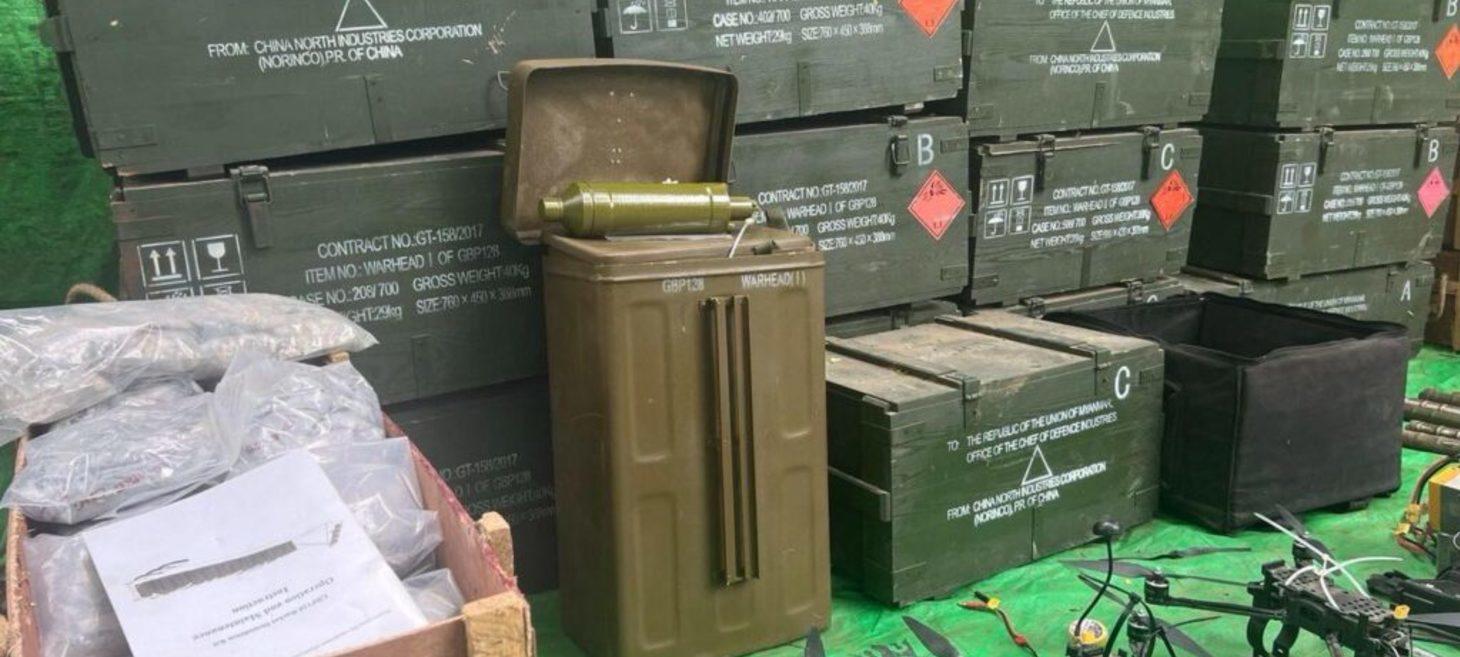
Myanmar rights group urges action against Chinese weapons manufacturer NORINCO
A Myanmar rights group is urging action against NORINCO, a Chinese weapons manufacturer. This call comes amid growing concern over China’s role as a chief supplier of weapons to Myanmar’s military junta. The situation highlights the ongoing conflict in Myanmar, evidenced by reports of weapons and ammunition seized by resistance forces and various other incidents involving the junta and resistance groups across the country.
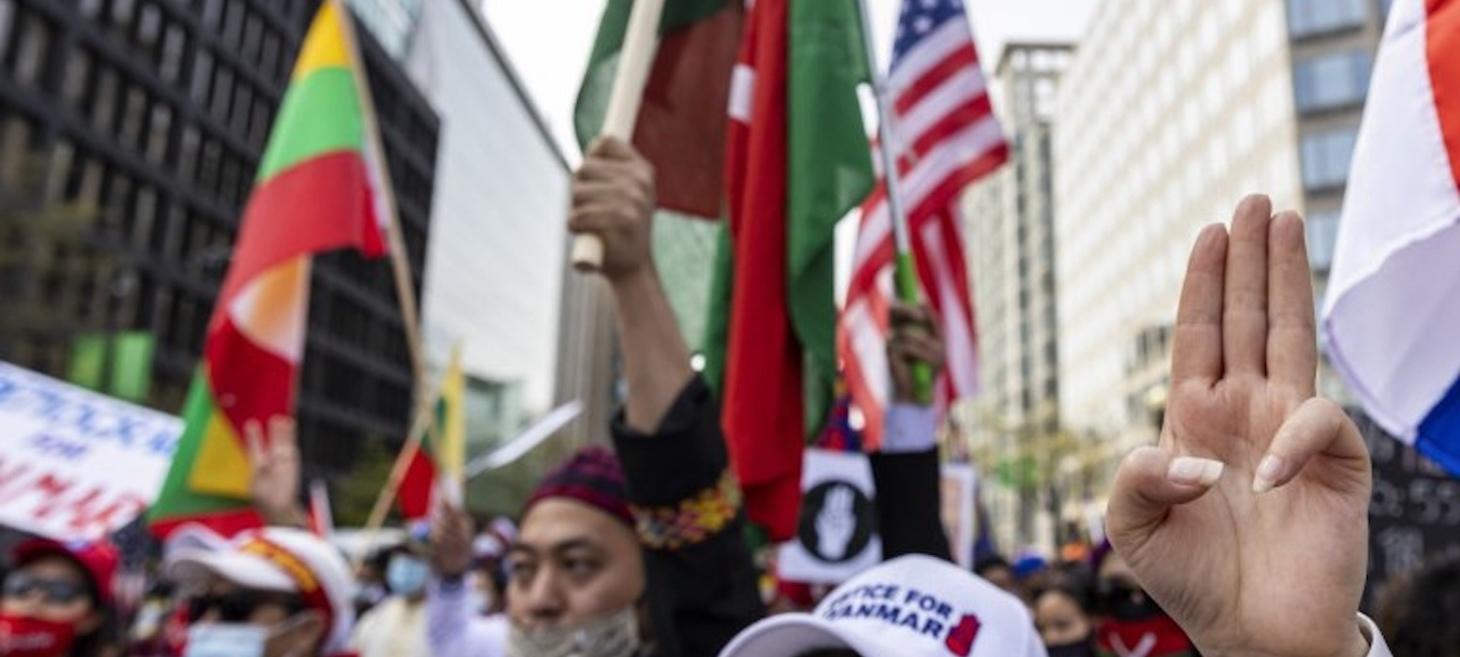
Deciphering America’s mixed messaging on Myanmar
The US is sending conflicting signals on Myanmar, with Congress advancing several bills to tighten sanctions and support democratic forces while the administration has simultaneously removed some individuals and entities from a sanctions list. Three new bills, the BRAVE Burma Act, Burma GAP Act, and No New Burma Funds Act, aim to sever the military junta’s economic lifelines, deliver justice, and support democratic actors, showing a bipartisan commitment in Congress. Despite these legislative efforts, the junta is spending millions on lobbying firms to gain international legitimacy, which, coupled with administrative actions and potential missteps like the Trump administration's tariff announcement to the coup leader, creates a complex and often contradictory US policy landscape.
Governance & Rule of Law
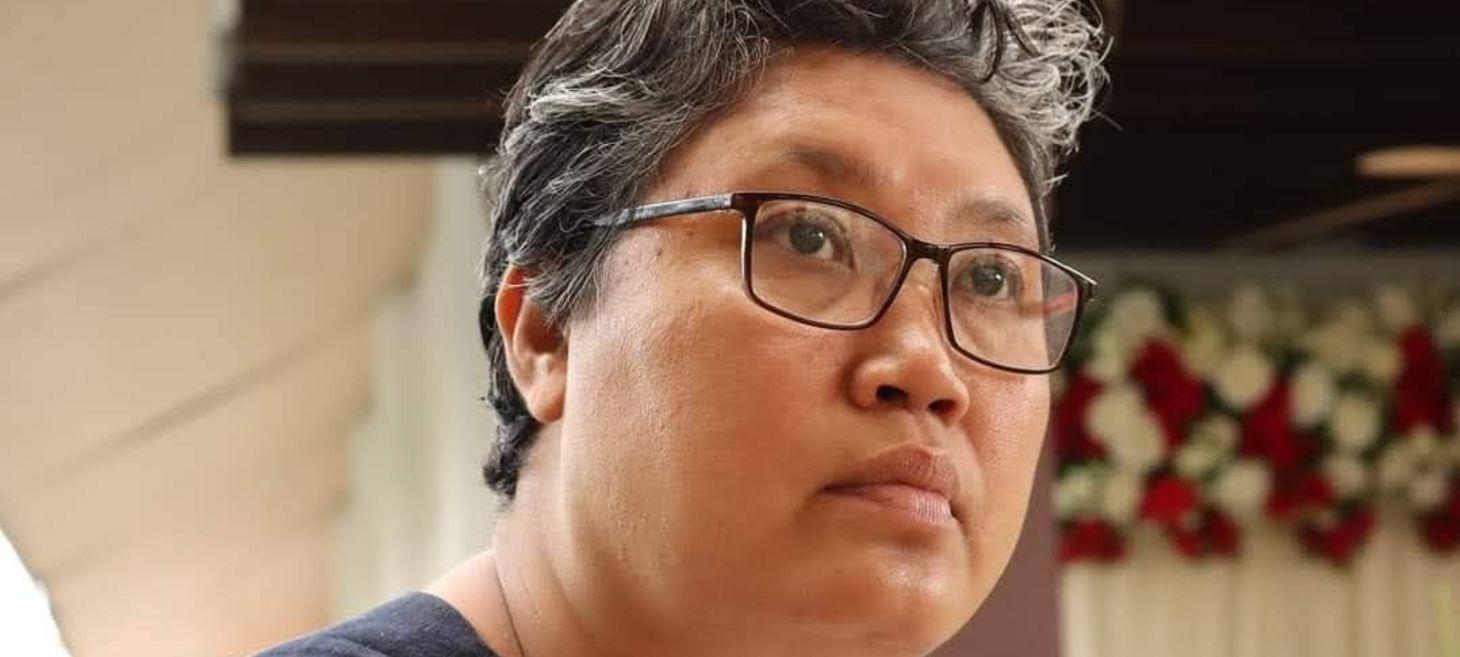
Prominent Myanmar labour activist arrested in Yangon
Myo Myo Aye, the leader of the Solidarity Trade Union of Myanmar, has been arrested in Yangon. The charges against her and her current whereabouts are currently unknown.
Military
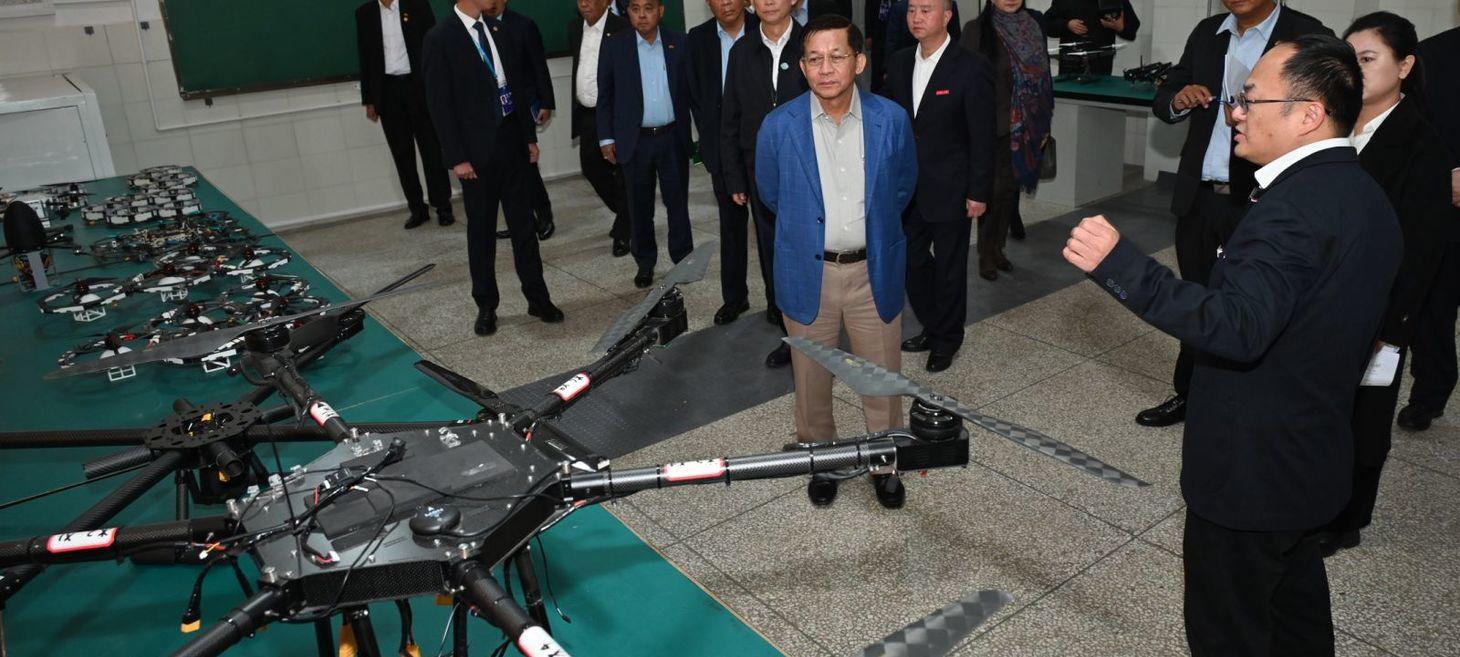
Myanmar junta enacts sweeping law on protection of military secrets
The Myanmar junta has enacted a sweeping law on the protection of military secrets. According to defecting former officers, the apparent aim of this law is to discourage leaks from inside the junta’s bureaucracy. Additionally, the law seeks to prevent further defections from the military.
National Unity Government
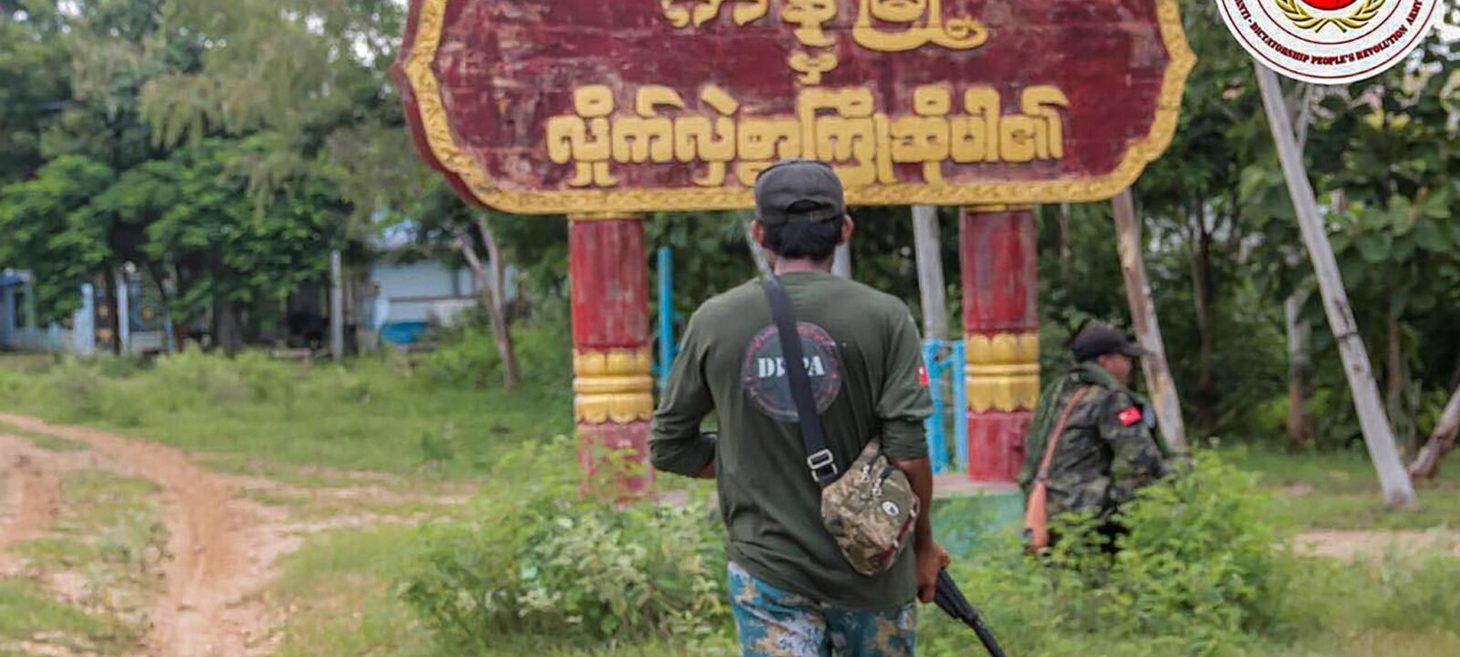
Kani Township judges fired over infighting, NUG says
Four judiciary members in Kani Township, located in a key resistance-held area of Sagaing Region, were dismissed from their positions. This action was taken due to a power struggle and breaches of protocol among the judiciary members. The National Unity Government (NUG) reportedly confirmed the firing of these judges, as reported by Myanmar Now on July 28, 2025.
Natural Disaster
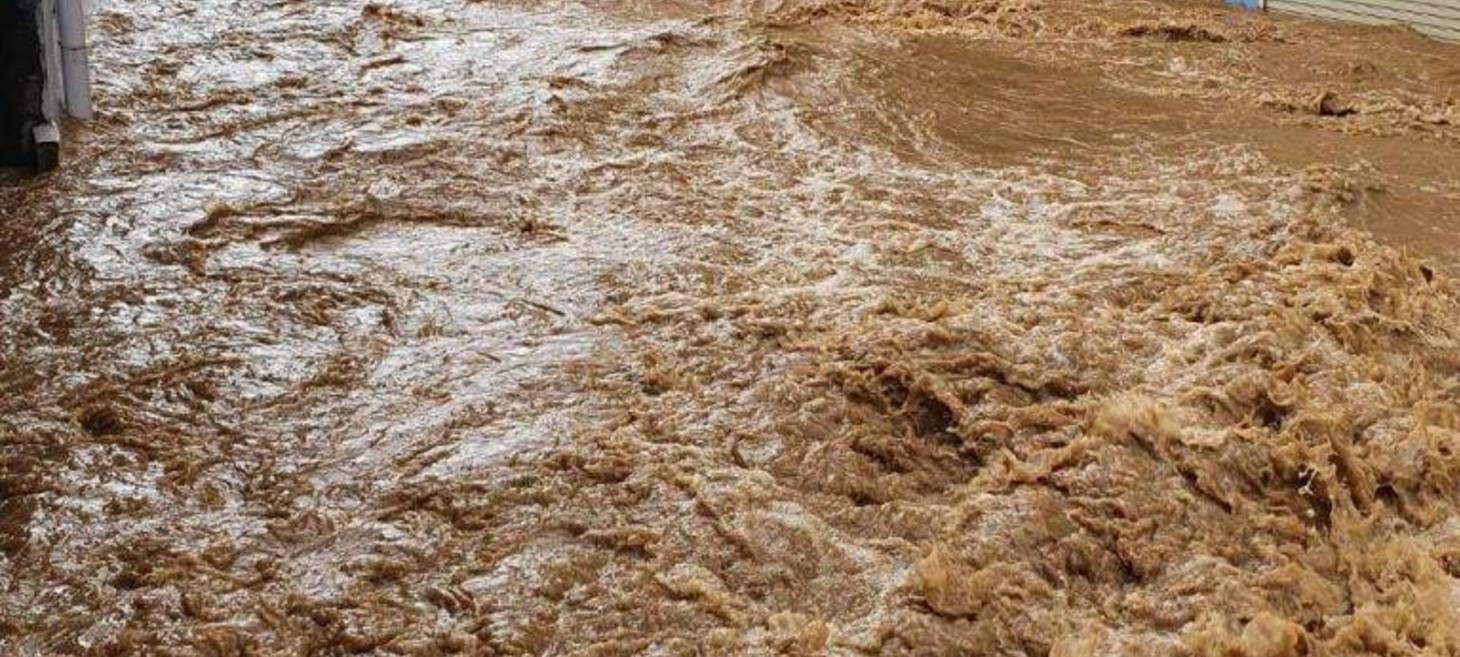
Flooding leaves 4 dead, 4 missing in eastern Myanmar
Heavy rain on Sunday night caused flooding in Konesaung village, Pindaya township, located in eastern Myanmar's Shan state, resulting in floodwater from the mountain washing away five houses. Four people have died and four remain missing after the incident, with four bodies recovered and search operations continuing for the others. This event initially left eight people missing.
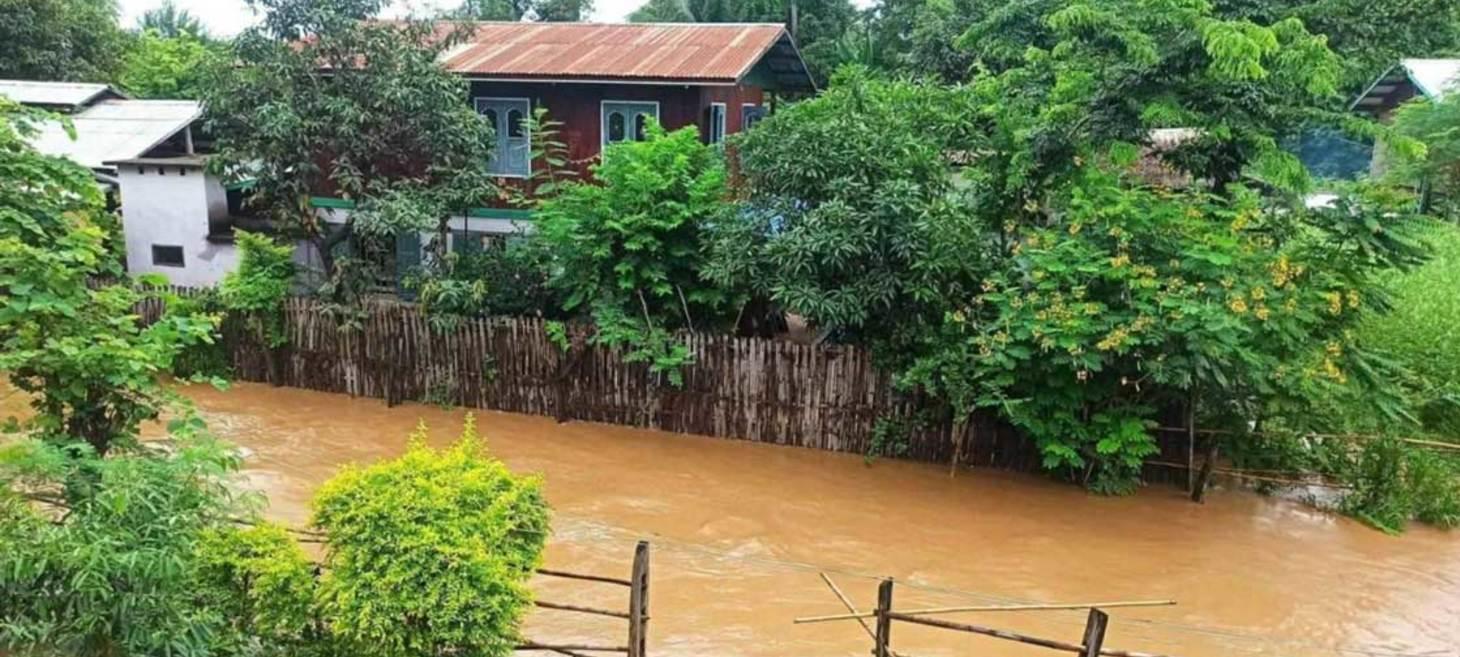
Cyclone Wipha Triggers Widespread Flooding Across Eastern and Southern Shan State
Torrential rains from Cyclone Wipha have caused widespread flash floods across eastern and southern Shan State, damaging homes, submerging farmland, and forcing evacuations in multiple townships. Specifically, the Nam Teng Stream in Langkho (Larng Khur) Township and the Nam Teng River in Laikha Township burst their banks, inundating neighborhoods, villages, and extensive agricultural areas, while the Mae Sai River in Tachileik Township exceeded danger levels. These floods exacerbate the struggles of rural communities in Shan State, which are already vulnerable due to limited infrastructure and ongoing conflict, making them ill-equipped to respond effectively to such natural disasters.
Politics
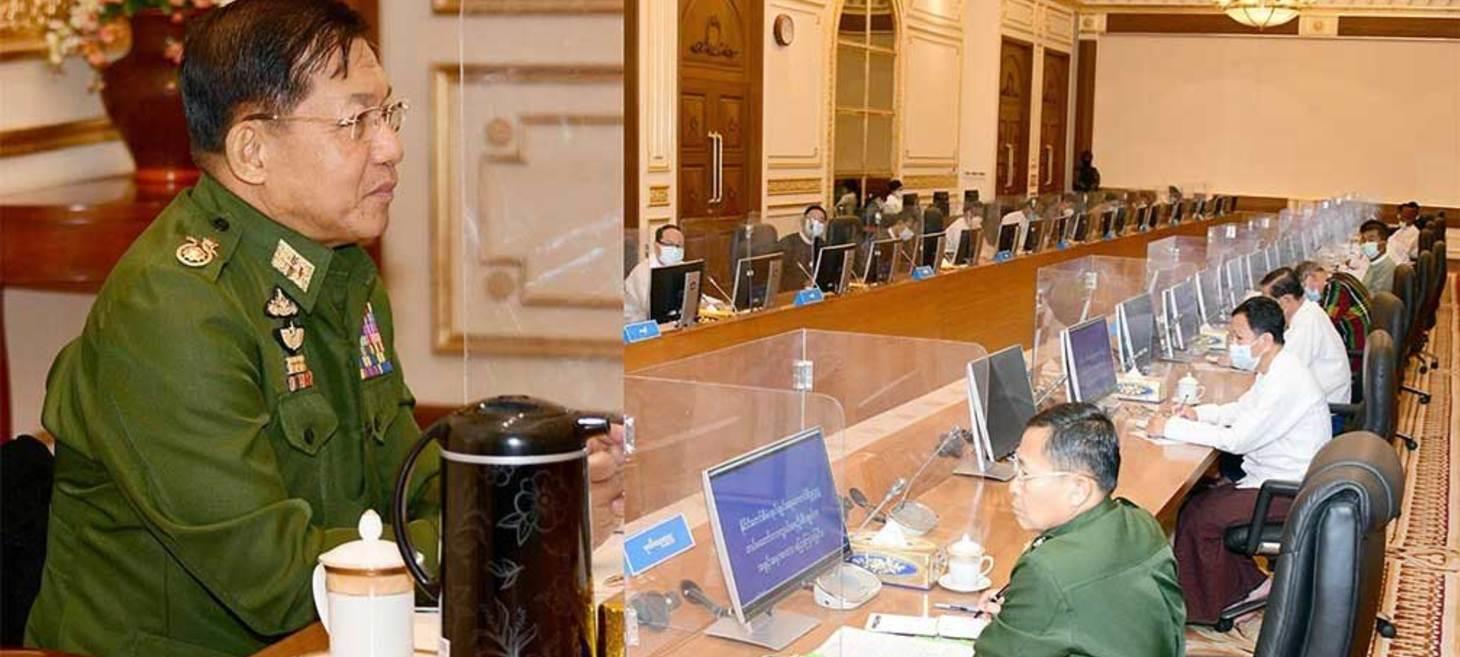
LEGITIMACY COMPETITION HEATS UP: SAC moves ahead as NUG tries to figure out on how to counter it
The State Administration Council (SAC) is actively seeking to gain legitimacy through planned elections, garnering support from countries like China, Russia, India, and certain ASEAN members, despite controlling a minority of the country's territory. In response, the National Unity Government (NUG) and its allied ethnic-democratic opposition groups are striving to form a unified front, aiming to establish a transitional federal union constitution and coordinate military and political strategies to counter the junta's efforts. This ongoing legitimacy competition underscores the urgent need for the anti-junta forces to accelerate their unity and present a cohesive alternative to the international community.
Sanctions
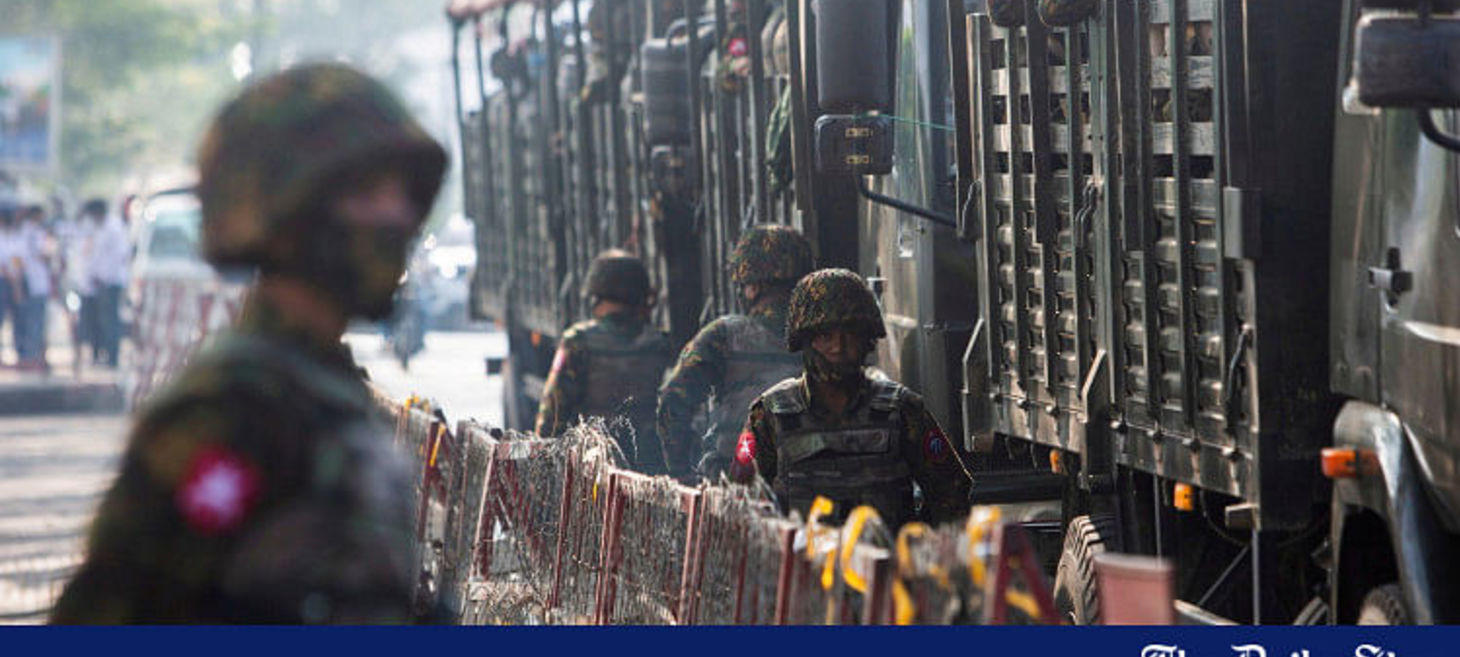
Reasons why the US lifted sanctions on Myanmar
The US quietly removed several Myanmar-linked individuals from its sanctions list, a move that surprised human rights groups but was not driven by Myanmar's domestic politics or human rights concerns. Instead, this decision is rooted in geostrategic and geopolitical factors, primarily concerning China's expanding influence in the Indo-Pacific region, Myanmar's critical location, and its rare earth mineral resources, which are vital for modern technology and currently dominated by China. Therefore, the easing of sanctions is a pragmatic attempt by the US to rebalance options, secure supply chains, counter China's "String of Pearls" initiative, and maintain leverage in a contested region, rather than rewarding the military junta.